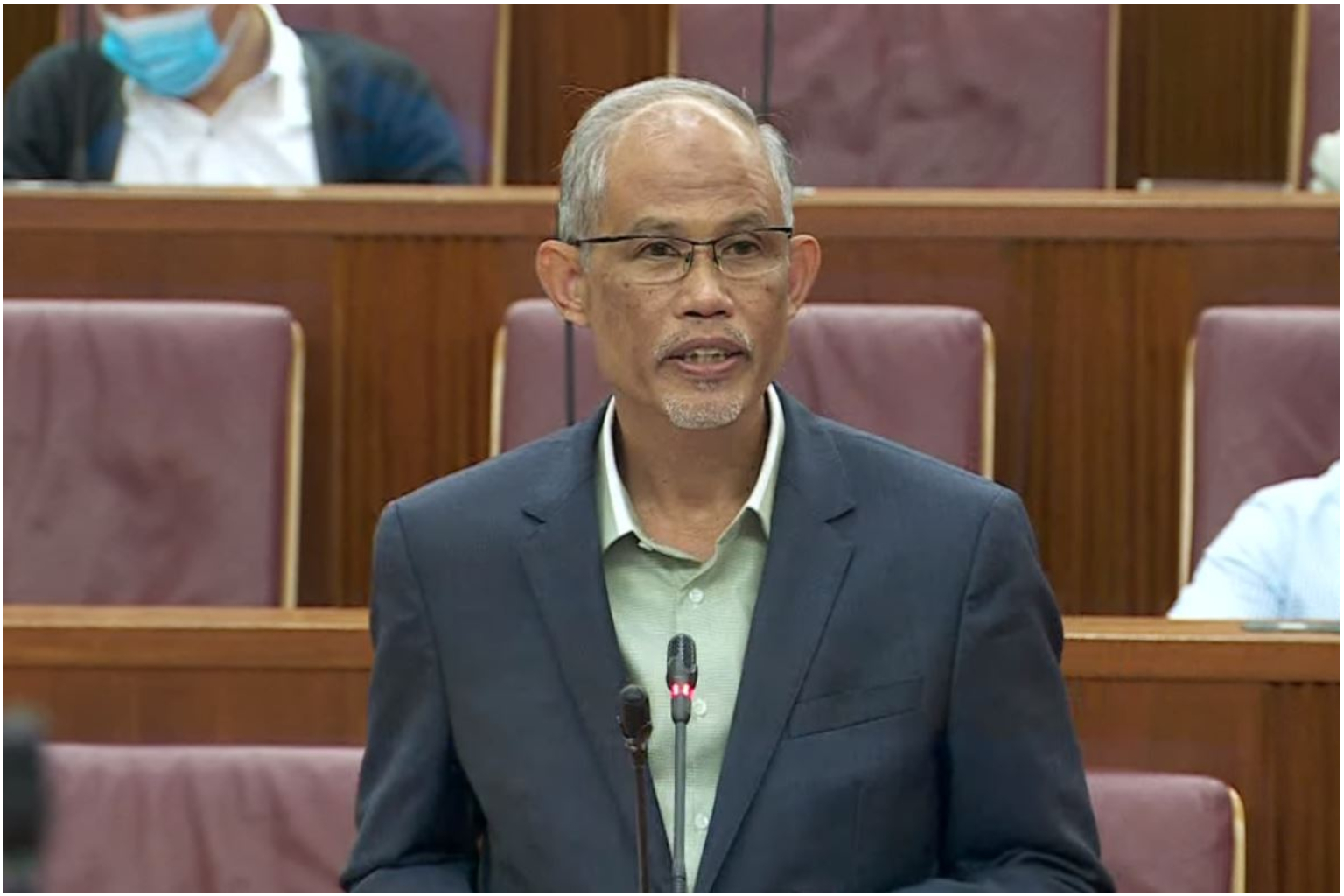2 new early intervention centres for children with special needs to be set up: Masagos
Sign up now: Get tips on how to help your child succeed

Mr Masagos said that the Government has improved the affordability and quality of disability services.
PHOTO: GOV.SG
SINGAPORE - Children with special needs aged six and under will soon be able to get early intervention support from two new government-funded centres, said Minister for Social and Family Development Masagos Zulkifli.
The first of the two Early Intervention Programme for Infants and Children (Eipic) centres is expected to be ready by the end of this year, with the second ready by the middle of 2024.
And from April, more private sector operators will join a scheme that will allow families to receive subsidies to help them defray the cost of intervention.
Sixteen centres – up from 10 previously – will come under the Enhanced Pilot for Private Intervention Providers (PPIP) – a programme run by the Early Childhood Development Agency (ECDA).
Hence, the total number of places in the programme will increase by 40 per cent, said Mr Masagos on Wednesday (March 9) in a written reply to Mr Christopher de Souza (Holland-Bukit Timah GRC).
Mr de Souza had filed a parliamentary question asking if the PPIP could be expanded to allow more families to qualify for financial support.
The PPIP offers families more choices of early intervention programmes for children who need medium to high levels of support, and who have been referred to Eipic. The programme complements Eipic, which is run by social service agencies, said Mr Masagos.
“Appointed centres have to participate in an open selection process and be evaluated in areas such as programme design, staff quality and centre management,” he said.
In a separate written reply on Thursday (March 10) to Ms Ng Ling Ling (Ang Mo Kio GRC), Mr Masagos said the waiting time for early intervention has gone up because of a higher number of hospital referrals to government-funded centres, and the impact of Covid-19 and safe management measures over the past two years.
The ECDA has been regularly reviewing these safe management measures so that early intervention centres can support more children, he added.
It now takes an average of seven months for children to enrol in Eipic from the time they are referred, up from six months in 2020, said Mr Masagos.
Waiting times, he added, varies across centres and regions, depending on demand.
Among PPIP centres that had a wait list, it took families about four to 12 months to enrol in the programme last year (2021), he said.
Among PPIP centres that had a wait list, it took families about four to 12 months to enrol in the programme last year (2021), he said.
In general, early intervention services within pre-schools have been expanded to support more children with developmental needs, said Mr Masagos.
For instance, the Development Support Plus programme was introduced in 2019 to cater to children who have made progress under Eipic and are able to transit to receiving intervention in a pre-school setting, he said.
Another example is the ongoing Inclusive Support Programme pilot that is being progressively rolled out at seven pre-schools since October last year to support children aged three to six who require medium levels of early intervention support.
Those on this scheme receive both early childhood education and early intervention within their pre-schools.
Mr de Souza had also asked whether more financial support can be given to all families with special needs children, given the unavoidable expenses they incur for the children’s education and therapy from infancy to adulthood.
In response, Mr Masagos said the Government has improved the affordability and quality of disability services.
“Fees for government-funded early intervention programmes are subsidised to ensure affordability, with means-tested subsidies ensuring that lower-income families pay less.”
For instance, a family with a per capita household income of $1,000 per month pays $10 monthly for Eipic, and a family with a per capita household income of $1,400 per month would pay $50.
In October last year, fee caps were put in place for day activity care clients from households with gross per capita household income of $2,800 per month or less, to help lower their out-of-pocket expenses.
The Ministry of Social and Family Development also increased support through the Assistive Technology Fund last month.
This is designed to cover a wider range of devices to enable independent living, and provide higher subsidies for Singaporeans with a per capita monthly household income of between $801 and $2,000.
The fund subsidises the cost of purchasing assistive technology devices like wheelchairs, ventilators and visual or reading aids.


